‘English ambassador or English Camões?’
The Lusiad (1655) and Richard Fanshawe’s embassy to Portugal (1662-63)
Tiago Sousa Garcia
Newcastle University
tiago.sousa-garcia@newcastle.ac.uk
@tiagosousagarci
@AnimatingTextNU
Nor lack I now an Eye, youʼve given me one […]
An English Eye and English Tongue so sweet
Phaebus himselfe might learne to speake by it
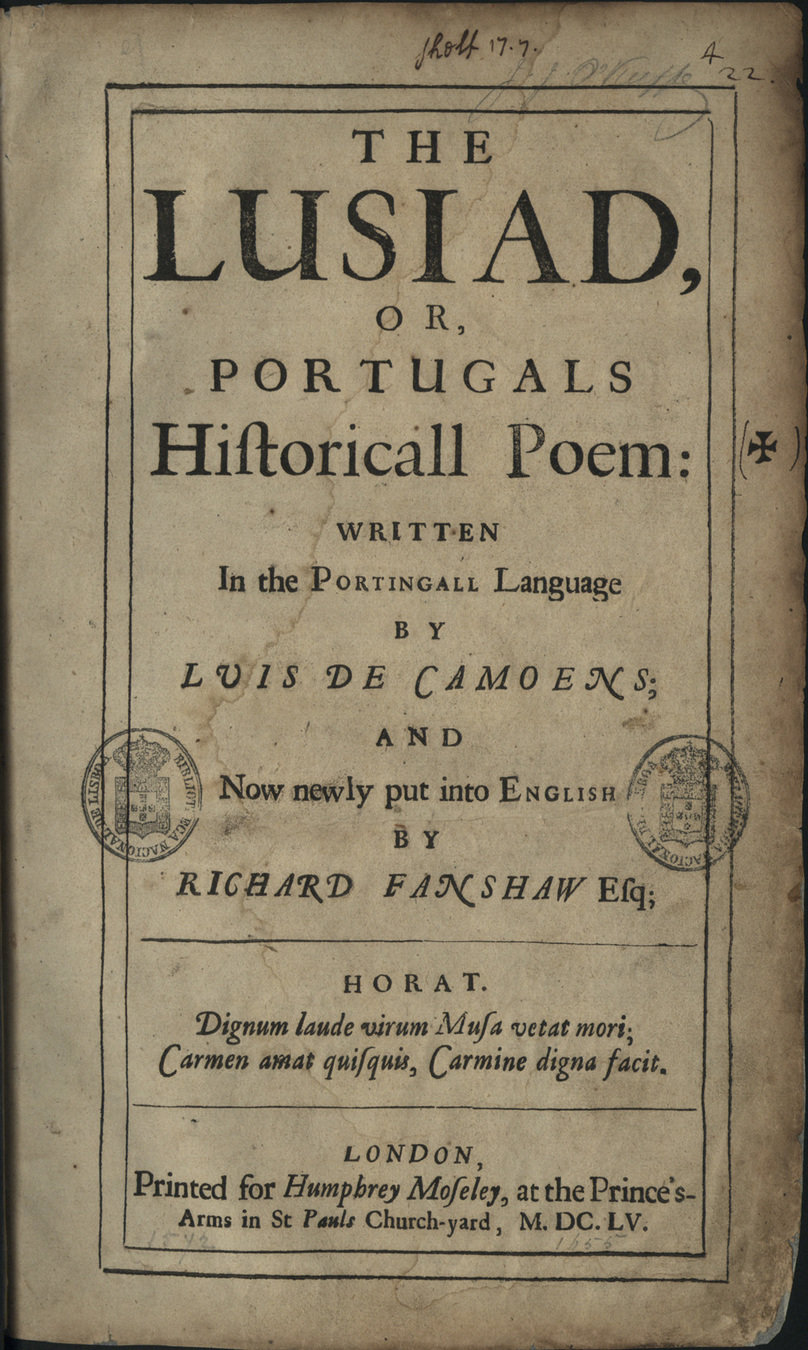
In Peter Davidson, ed., The Poems and Translations of Sir Richard Fanshawe, 2 vols. (Oxford: Clarendon Press, 1999), vol. 2 575.
The Lusiad, 1655
when I read your letter to the King, he was the most out of countenance I ever saw him, and had as absolutely forgot, indeed remembered no more of his engagement to you than of anything was done the day he was born; and I must again tell you, it cannot be enough wondered at that you would not, during the time of your stay in England, when you had frequent opportunities, or at your first coming over [to France], be sure that the King should be put in mind of your pretence, which had deterrmined all other.
Hyde to Fanshawe, 30/04/1659 [10/05/1659], in Lomas, The Manuscripts of J.M. Heathcote, Esq., Conington Castle, 7.
as soon as that place falls [secretary of state], which it will do ere long, it shall infallibly be yours
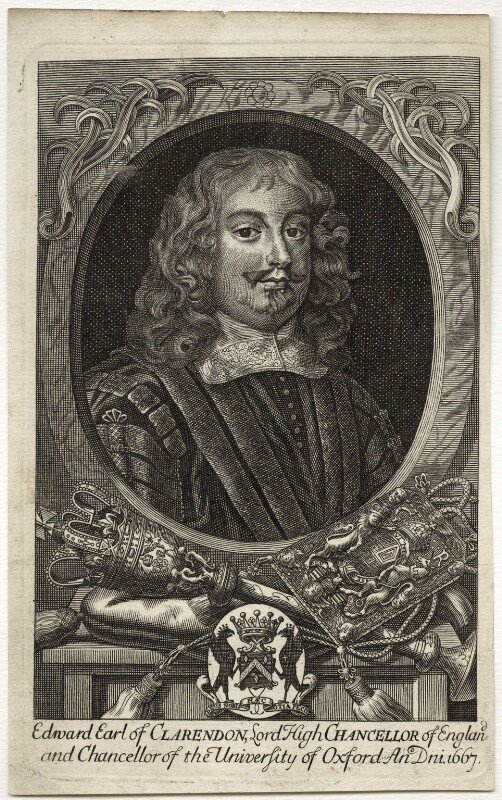
Hyde to Fanshawe, 4[14]/06/1659, in ibid., 9.
Edward Hyde, 1st Earl of Clarendon, after Sir Peter Lely, 1667
My lord and husband, I shall take it for a particular favour that your Majesty for my sake would be pleased to bestow upon the bearer hereof, Sir Richard Fanshaw, some considerable office in my household […] And likewise that your Majesty would be pleased to grant unto his wife, Donna Anna, the office to be that woman of my bedchamber, unto whom it belongs also to be Lady of the Jewls, and that this favour may be granted har, as well for the services of her husband
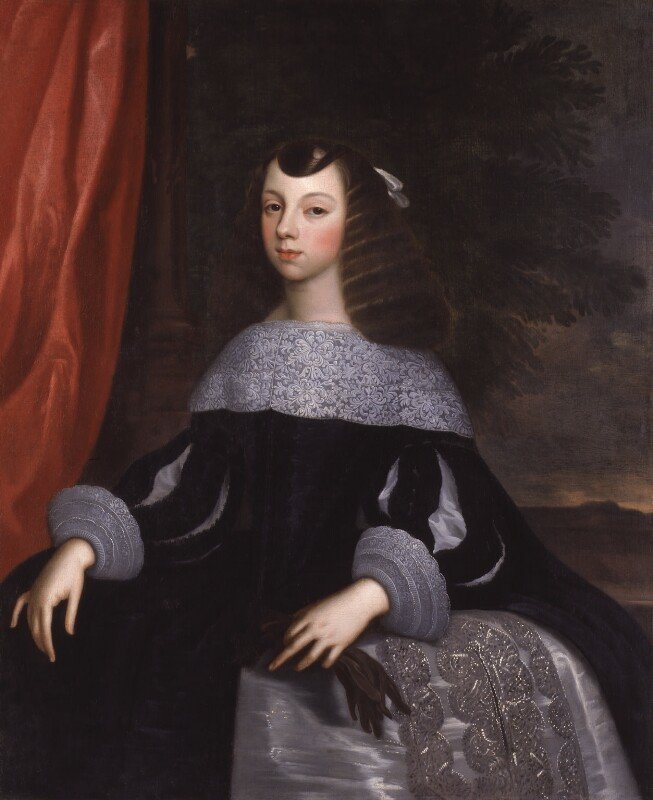
Catherine of Braganza to Charles II, 18[?]/11/1661, in ibid., 23
Catherine of Braganza by or after Dirk Stoop, c. 1660-1
I will not be so unkind as to dissuade you from anything you think good for yourself, nor will you take it ill of me for not thinking as you do, so I do not hinder you from doing as you desire, only I pray think of some person fit to be sent thither as soon as you come away, for it will be absolutely necessary always to have a minister in that court [of Portugal].
Hyde to Fanshawe, 6/12/1661, in ibid., 23
I, for my part, will not fail in my promised succours, so that if one thing fails the other will be more than sufficient. Those which were lacking when your Majesty wrote have now […] duly arrived, and I cannot fear either that they will fail to imitate the valour of their ancestors in the service of your crown or your Majesty the generosity of yours in your treatment and rewarding of them, the bearer of this, my ambassador, Sir Richard Fanshaw, serving as a reminder for both and giving himself entirely to your royal service.

Charles II to Alphonso VI, 7/08/1662, in ibid., 30–31.
Charles II by John Michael Wright, c.1676
con pouca Corrupcã cré que he latina
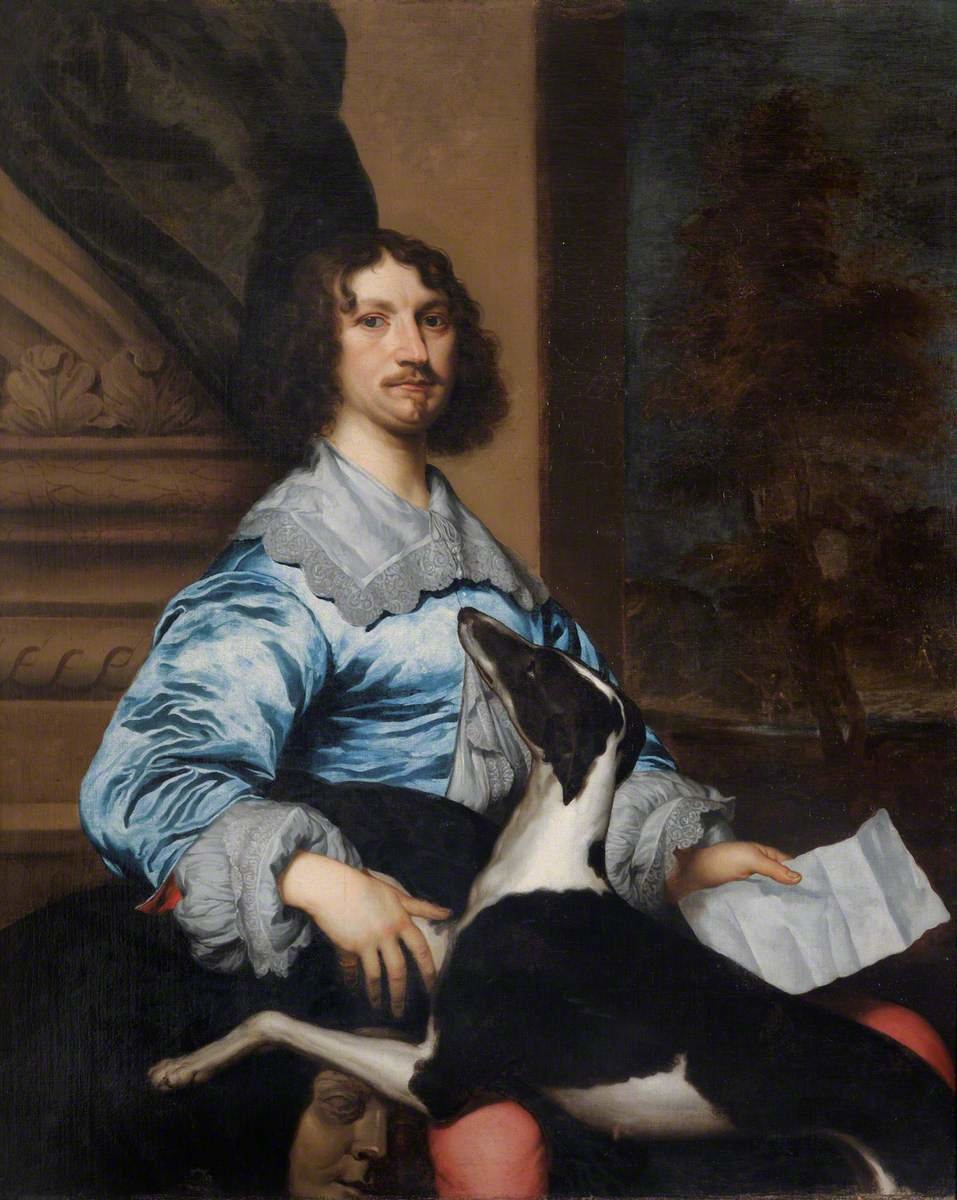
ʻSir Richard Fanshaw to Antonio de Sousa de Macedoʼ, SP 89/6 f.41.
Sir Richard Fanshawe by William Dobson, 1644
Since it is beautiful for us that the greatest Portuguese (nay European) poem arrives so clearly to so many men, and so beautifully translated by [your] wise hands
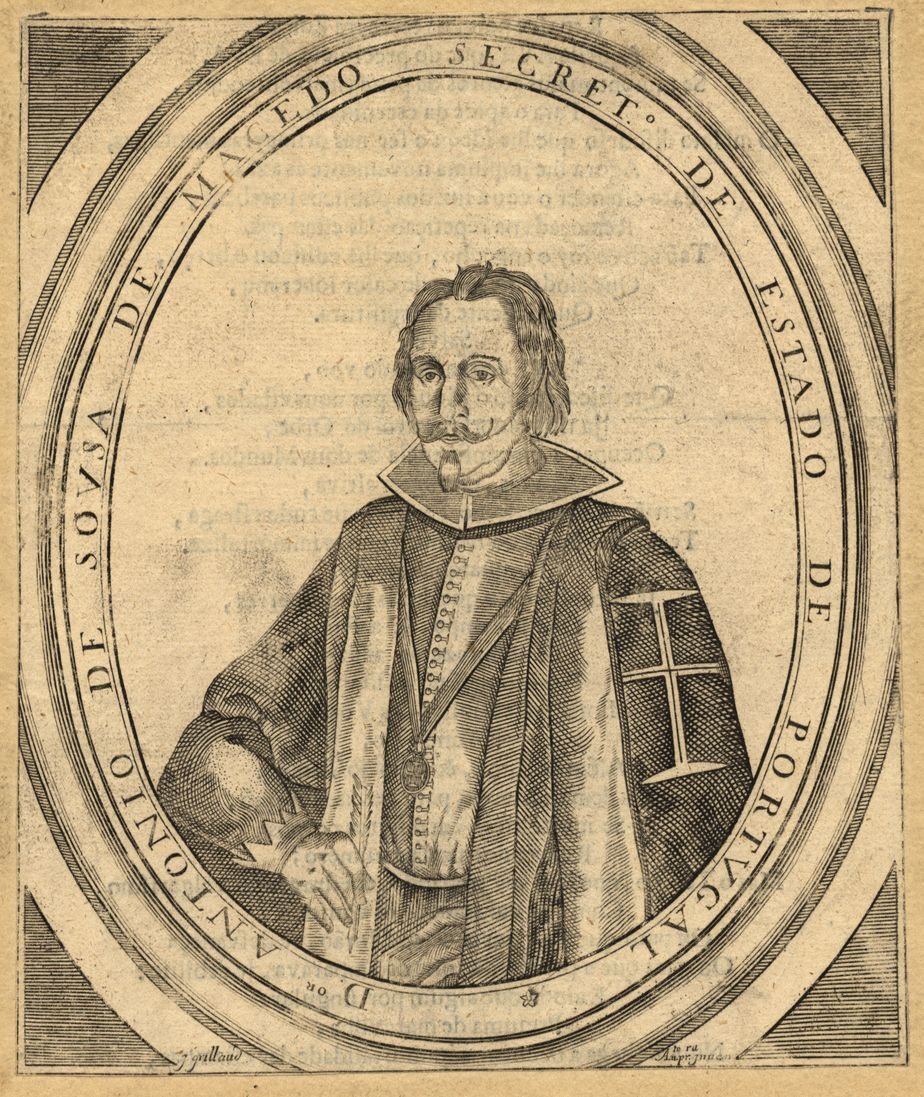
ʻAntonio de Sousa de Macedo to Sir Richard Fanshawʼ, SP 89/5 f.127a
António de Sousa Macedo, J. Grillaud, 1711
one delights in the translation of books into the vulgar tongue, another pants with the heavy toil of composing something new; one is content to become skilled in one language, another applies unremitting toil to acquire many. You alone have surpassed them all
In Roger Walker and W. H. Liddell, ʻ“Mercurius Anglus:” Sir Richard Fanshaweʼs Receptions as Ambassador in Lisbonʼ, Portuguese Studies 6 (1990), p. 129
If I speak of your translation of books into the vulgar tongue, what in you is more illustrious, what more splendid? Let there attend as witness the Prince of Poets Camoens who, although Portuguese by birth, nevertheless was taught by you with consummate skill to sing in the English tongue.
Ibid., p. 131
Nor lack I now an Eye, youʼve given me one […]
An English Eye and English Tongue so sweet
Phaebus himselfe might learne to speake by it

In Peter Davidson, ed., The Poems and Translations of Sir Richard Fanshawe, 2 vols. (Oxford: Clarendon Press, 1999), vol. 2 575.
Luís de Camões

Thank you!
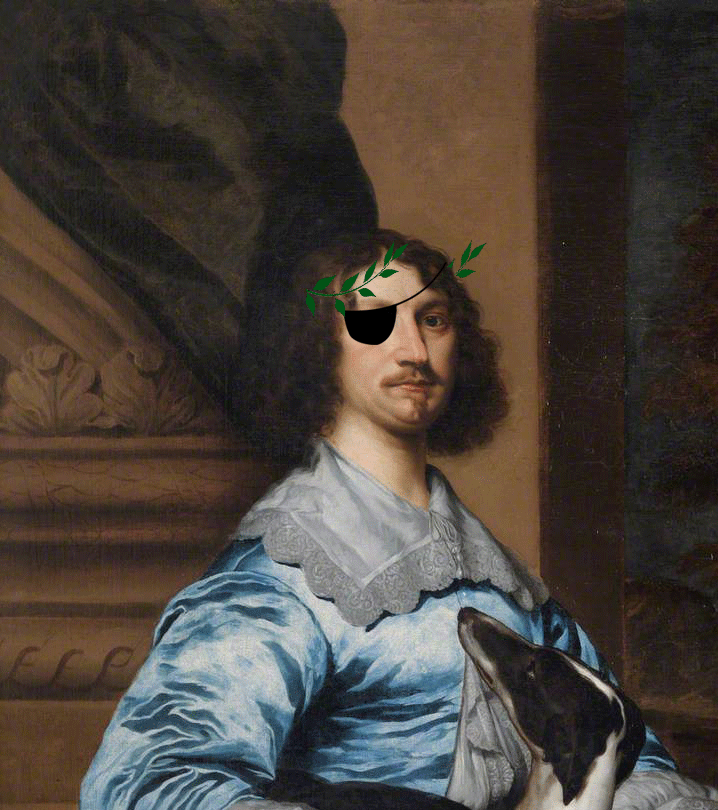
AIR 2017 -- English Ambassador or English Camoes?
By tiagosousagarcia
AIR 2017 -- English Ambassador or English Camoes?
Presentation for the Anglo-Iberian Relations in Zafra, 2017
- 1,058

